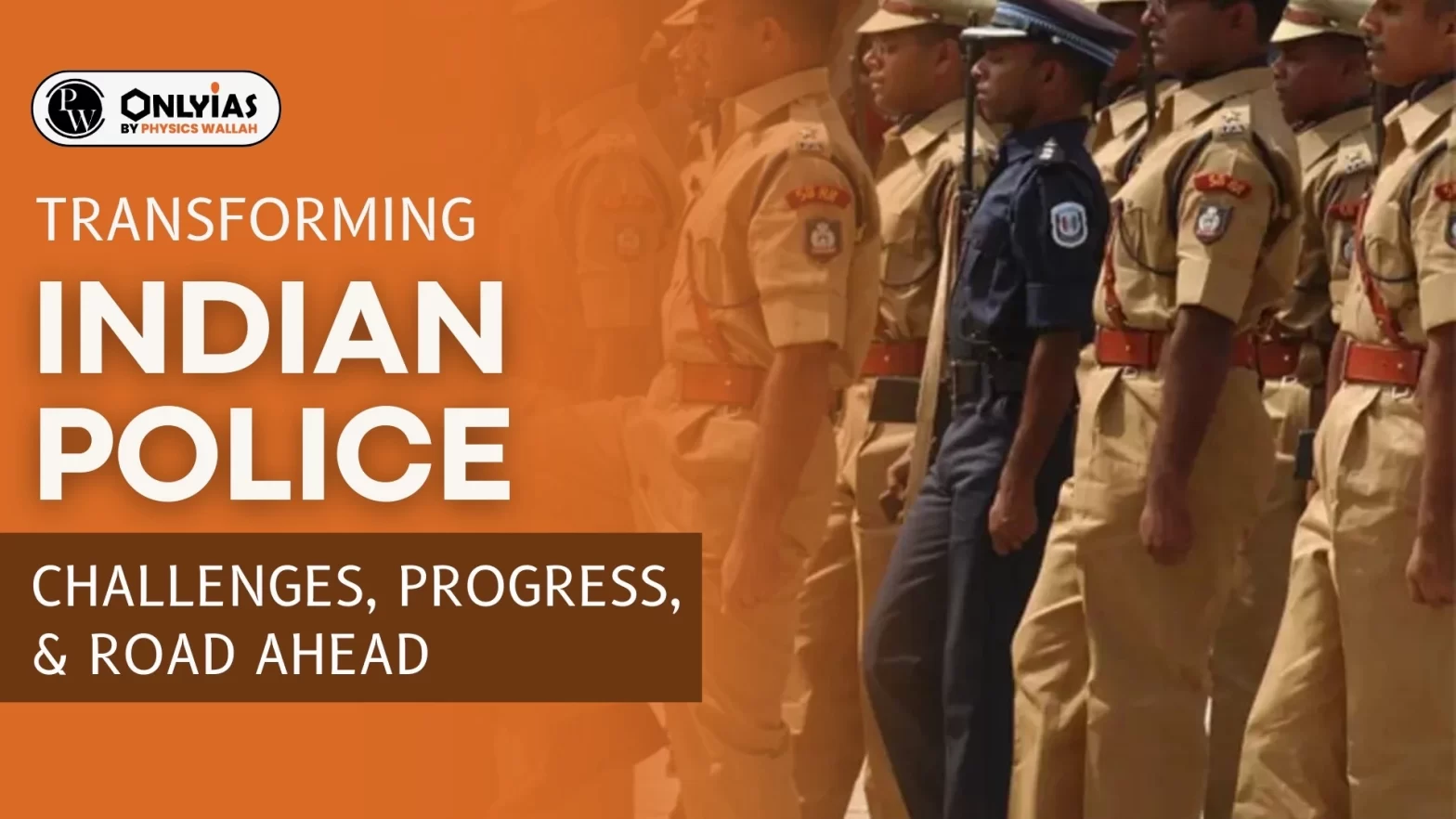![]() 13 Jan 2024
13 Jan 2024

Context: This editorial is based on the news “A case diary for the Indian police” which was published in The hindu. Recently, a three-day conference of Indian police officers (Director General of Police level) was held in Jaipur. This article highlights the challenges that confront policing.
| Relevancy for Prelim: Indian Police Reforms, Federalism and Policing, Role of Enforcement Directorate (ED), Technology in Policing, Government Initiatives for National Security
Relevancy for Mains: Challenges faced by Indian Police and the Way Forward, Ethics in Law Enforcement & Importance of Trust in Public Institutions. |
|---|
|
Must Read |
|
| NCERT Notes For UPSC | UPSC Daily Current Affairs |
| UPSC Blogs | UPSC Daily Editorials |
<div class="new-fform">
</div>